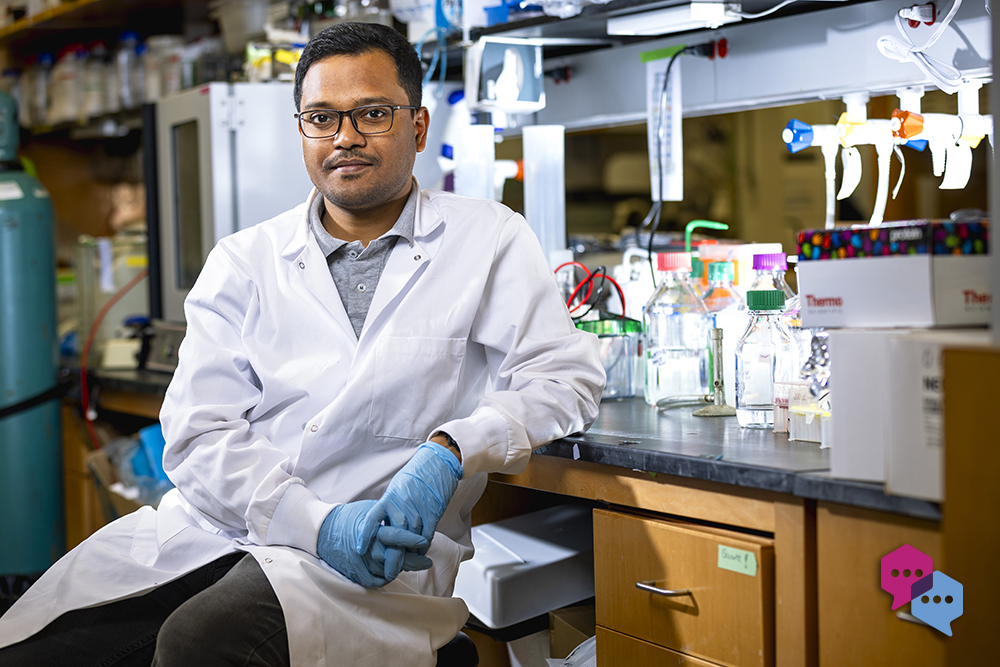Sourav Kumar Patra is a postdoctoral researcher in the Department of Biochemistry and Biophysics within the UNC School of Medicine. He studies the emergence and evolution of genetic coding and protein translation machinery and, more specifically, characterizes variants of a crucial enzyme for protein synthesis called aminoacyl tRNA synthetase.
Q: How did you discover your specific field of study?
A: I was born in the “City of Joy,” or Kolkata (Calcutta), India. As a renowned surgeon, my father encouraged me to build a strong conceptual base in various subjects, which later in life helped me to secure good academic records. I did both my bachelor’s and master’s in biochemistry, while also completing studies in physics and microbiology.
During my PhD program at the University of Calcutta, I was exposed to research, model systems, and an exceptionally brilliant group of people and became enthusiastic about protein biology and enzymology. Then, I found my postdoctoral research position at the Carter Lab at UNC, which focuses on how enzymes increase the rate of chemical reactions.
Q: Academics are problem-solvers. Describe a research challenge you’ve faced and how you overcame it.
A: I started working with the “Urzyme” model, made up of shortened and recombinant aminoacyl tRNA synthetase (AARs) enzymes. This was challenging from day one because AARs urzymes have very low enzymatic activity, and the materials they produce are negligible. To overcome this problem, I introduced a new technique to visualize their activity. I also changed the physical and chemical conditions for the chemical reaction to maximize product formation, which finally worked!
Q: Describe your research in five words.
A: Evolution of cellular translational machinery.
Q: Who or what inspires you? Why?
A: My father and mother both inspire me to do better in life.
Scientific research is full of ups and downs. To keep myself motivated, I often think about the cycles that nature goes through every year. But still, it never gets tiring.
Q: If you could pursue any other career, what would it be and why?
A: I always admire and respect the role of teachers in society. They not only build the character and mind of a student but also a nation through their work. After high school, I taught all kinds of students and worked with them during my PhD program.


